Summer is upon us, and here at The Archive, we’re putting together our reading lists, which means looking ahead at some of the most exciting new history books that are hitting shelves in July, August, and September of 2025. From the construction of the pyramids to Cold War Europe to a high school in New Orleans, we’ve got books on subjects ranging from war to rope, and everything in between.
Some of these exciting forthcoming books laser-focus on a specific subject or time period, while others explore new ways of looking at the past. Whatever your historical interest, there’s a must-read book waiting for you among these exciting new titles coming out in the summer of 2025!
July 1
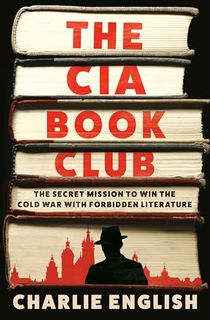
The CIA Book Club
While the Iron Curtain divided Europe, a Romanian-born intelligence operative ran a massive, CIA-funded “book club” out of Manhattan, smuggling some ten million books into Soviet-controlled territory. This operation is brought to life in Charlie English’s “finely written page-turner full of well-researched stories of smuggling, intrigue and survival” (The Guardian) that “sounds like a current-times call to action from the American Library Association” (NPR).
July 8
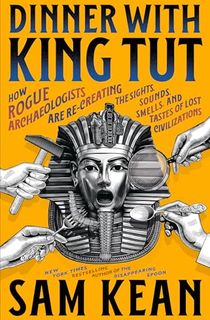
Dinner with King Tut
“One of America’s smartest and most charming writers” (NPR) follows “rogue” archaeologists as they attempt to recreate the sights, sounds, smells, and tastes of ancient history. Following scientists who are pursuing the field of “experimental archaeology,” which seeks to recreate the material conditions of the past in order to better understand how people lived hundreds or even thousands of years ago, this unique book follows a band of offbeat experts as they (sometimes) leave behind archives, laboratories, and classrooms to try to bring the past to life in new ways.
July 29
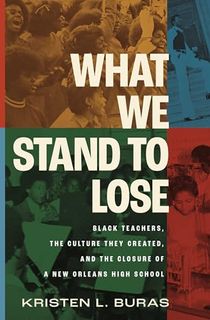
What We Stand to Lose
In modern American society, schools have become a political battleground. What is often lost in these discussions is the impact on the schools themselves, the students who attend them, and the teachers who work there to shape young lives. Through interviews and archival research, Kristen Buras focuses on the history of a single school in New Orleans, George Washington Carver Senior High School, to examine the repercussions of school closings and how they disproportionately affect students of color in a book that “reminds us of the rich and irreplaceable work of Black teachers who care, who are there for children, who EDUCATE in the best sense of that word” (David Gillborn, editor of the journal Race Ethnicity and Education).
August 5
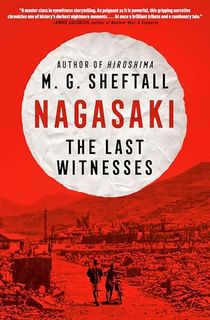
Nagasaki: The Last Witnesses
Hailed as “a definitive account of a watershed moment in history” by Kirkus Reviews, this second volume in M. G. Sheftall’s “prize-worthy” two-book series explores the history of the atomic bomb through the voices of the only people who witnessed it firsthand: those survivors of the devastation in Hiroshima and now Nagasaki. From the streets of the city in the days before the bombs fell to the cockpit of the plane that delivered the terrible payload, one of the most horrific and significant moments in world history is told by those who were there to see it, before that vanishing resource is gone forever.
August 12
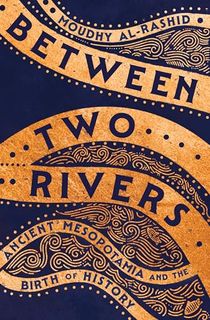
Between Two Rivers
An honorary fellow at the University of Oxford, Moudy Al-Rashid specializes in ancient Mesopotamia, and brings that expertise to “a highly readable introduction to an era of history that deserves to be better known” (Kirkus Reviews) in this book that “provides remarkable insights into ancient lives” (The Sunday Times). Beginning from an examination of ancient artifacts from the region between the Tigris and Euphrates rivers, Al-Rashid brings to life the people who lived there thousands of years ago in a “must-read, millenia-spanning history” that spins “a yarn of gold from very fragmentary sources” (New Scientist).
August 12
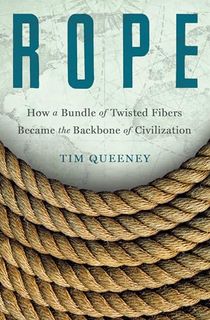
Rope
Sometimes, the most scintillating history begins with the simplest of subjects. Such is the case with this “fascinating object history that spans from prehistoric times to the near future” (Library Journal). Journalist Tim Queeney takes a look at one of the most ubiquitous of all human inventions: the humble rope, from the building of the pyramids to the fleets of Magellan and into the not-so-distant future. A sailor himself, “Queeney demonstrates that a seemingly prosaic subject is anything but” (Kirkus Reviews) in this one-of-a-kind book that makes “a good addition to the growing body of work which describes the history of ordinary objects” (Booklist).
September 16

The Blood in Winter
“Netflix should make this enjoyable English civil war history into an epic drama,” raves The Times of London. “You could hardly find a more engrossing or exciting story.” In 1641, England was in the midst of a fragile peace—one that would be shattered unexpectedly when King Charles I brought an armed force into the House of Commons to arrest five dissident Members of Parliament, in an act that precipitated not only civil war in England but the American Revolution years later. Drawing on vast archival research, Jonathan Healey creates a “lucid, fast-paced and exhilarating account” of long winter months in which much of England would change forever, in a drama that “remains gripping to the last” (Literary Review).
September 30

How to Kill a Witch
With October right around the corner, what better book to read than one about witches—or, rather, about the lies told about witches in order to silence women throughout history, from Scotland in 1563 up through the present day. Authors Zoe Venditozzi and Claire Mitchell, the hosts of the popular Witches of Scotland podcast, weave a “terrifying, fascinating, and important” (Sara Sheridan, author of Where Are the Women?) history of witchcraft trials and witch hunts around the globe, and how their repercussions are still felt today in a “dignified, defiant memorial to thousands of ordinary women branded as witches and, all too often, put to death” (Malcolm Gaskill, author of The Ruin of All Witches).
Featured image: Shiro Studio / Canva








